Final report for EW14-006
Project Information
In accordance with a WSARE Professional Development Program grant, workshops were held for thirteen Guam and the Commonwealth of the Northern Mariana Islands (CNMI) agriculture professionals with a concentration on plant disease diagnostics training over a three and one-half day period. The workshops were hosted by the University of Guam PDP Project Coordinator Dr. Robert Schlub and his Extension Associate Mr. Roger Brown, University of Guam Research Plant Pathologist Dr. Anita Blas, University of Guam Ornament Horticulturalist Dr. Jim McConnell, and Dr. Raghuwinder Singh, head of the Louisiana State Extension Plant Diagnostic Center. Trainees were from the Northern Marianas College, CNMI Forestry, CNMI NRCS, Guam Customs and Quarantine, and the University of Guam. Topics included identifying plant disease symptoms of vegetables, ornamentals, fruit trees and forest trees. Also during this reporting period progress was made in the compilation of a plant disease list for Guam and an online training manual.
Objectives and Performance targets as stated in the proposal:
Pre-workshop, September 2014-March 2016: Activity (1) Centralize plant disease information and publish a list of plant diseases for Guam and the CNMI: “Plant Diseases in Guam and Northern Mariana Islands.” Activity (2) Develop a working draft diagnostics manual for Guam and CNMI: “Diagnostic Manual for Plant Diseases in Guam and the Northern Mariana Islands.” Trainees will be encouraged to provide literature and editorial comments during this stage.
Activity (3) Conduct a four-day plant disease diagnostic workshop, March 2016: Objective (1) Improve the ability of agricultural professionals to conduct educational programs on diagnostics and to respond to inquiries about ‘sick’ plants from commercial farmers, gardeners, and the public. Objective (2) Bring awareness to agricultural professionals of the importance of surveying and monitoring crops as a component of an integrated plant disease control program. The workshop will emphasize diagnoses based on field symptoms and those revealed through the use of a hand lens. The PI and subcontractor will provide the bulk of the instruction with individual trainees providing examples from their own experiences. The first three days will be a mix of field trips, lectures, and hands-on examination of samples. Trainees with access to their own laboratories will receive instruction on laboratory diagnostic techniques, whereas others will receive additional training in basic field diagnostics. To assist trainees in passing on their newly gained knowledge, a plant clinic will be set up in conjunction with the Guam Nursery Association’s monthly plant sale. Commercial agriculture and horticulture producers and others involved in growing plants will be encouraged to bring plant specimens and ask questions.
Post-workshop, March 2016-March 2017: Activity (4) Evaluate project outcomes. Activity (5) Publish and make available to the public the project’s disease list and diagnostic manual. Activity (6) Insure all participant information is made available in the Participant section of the final report so that WSARE can perform a long term survey/evaluation of the project
Cooperators
Education
Conduct a four-day plant disease diagnostic workshop, March 2016: Objective (1) Improve the ability of agricultural professionals to conduct educational programs on diagnostics and to respond to inquiries about ‘sick’ plants from commercial farmers, gardeners, and the public. Objective (2) Bring awareness to agricultural professionals of the importance of surveying and monitoring crops as a component of an integrated plant disease control program. The workshop will emphasize diagnoses based on field symptoms and those revealed through the use of a hand lens. The PI and subcontractor will provide the bulk of the instruction with individual trainees providing examples from their own experiences. The first three days will be a mix of field trips, lectures, and hands-on examination of samples. Trainees with access to their own laboratories will receive instruction on laboratory diagnostic techniques, whereas others will receive additional training in basic field diagnostics. To assist trainees in passing on their newly gained knowledge, a plant clinic will be set up in conjunction with the Guam Nursery Association’s monthly plant sale. Commercial agriculture and horticulture producers and others involved in growing plants will be encouraged to bring plant specimens and ask questions.
Education & Outreach Initiatives
(1) Improve the ability of agricultural professionals to conduct educational programs on diagnostics and to respond to inquiries about ‘sick’ plants from commercial farmers, gardeners, and the public. Objective (2) Bring awareness to agricultural professionals of the importance of surveying and monitoring crops as a component of an integrated plant disease control program.
See text and agenda elsewhere in this report that describes workshop topics
Educational & Outreach Activities
Participation summary:
Learning Outcomes
Project Outcomes
Impacts
Activity (4) Evaluate project outcomes
A three and one-half day workshop/training was held May 24 to May 27, 2016 on plant disease diagnostics for 13 professionals from the Northern Marianas College (3), CNMI Forestry (1), CNMI NRCS (1), Guam Department of Agriculture (2), Guam Customs and Quarantine (2), and the University of Guam (4). Topics included identifying plant disease symptoms of vegetables, ornamentals, fruit trees and forest trees. The workshops were hosted by the University of Guam PDP Project Coordinator Dr. Robert Schlub and his Extension Associate Mr. Roger Brown, University of Guam Research Plant Pathologist Dr. Anita Blas, University of Guam Ornamental Horticulturalist Dr. Jim McConnell, and Dr. Raghuwinder Singh, head of the Louisiana State Extension Plant Diagnostic Center.
Participant change in knowledge was measured using pre and post-tests. Pre-tests were given to each participant prior to the workshop, which was followed by post-tests at the conclusion of each workshop. The average gain in knowledge was 18 percent.
Workshop evaluation questions were given to the 13 participants: 1) The presenters in this workshop were well prepared; 2) I learned and gained knowledge from the workshop presentations; 3) I learned and gained knowledge from the workshop activities; 4) The content of this workshop is relevant to my job; 5) I will be able to use what I learned in the workshop at my job; 6) I enjoyed the workshop. Score was based on a scale of 1 (strongly disagree) to 5 (strongly agree). The average score for all questions combined was 4.6, and the lowest average score for a question was 4.4.
Due to the gain in knowledge and positive workshop evaluation score, the participants in the training will have a positive impact on diagnosing plant disease problems for their respective agencies.
Accomplishments
A three and one-half day workshop/training was held May 24 to May 27, 2016 on plant disease diagnostics for 13 professionals from the Northern Marianas College (3), CNMI Forestry (1), CNMI NRCS (1), Guam Department of Agriculture (2), Guam Customs and Quarantine (2), and the University of Guam (4). Topics included identifying plant disease symptoms of vegetables, ornamentals, fruit trees and forest trees. The workshops were hosted by the University of Guam PDP Project Coordinator Dr. Robert Schlub and his Extension Associate Mr. Roger Brown, University of Guam Research Plant Pathologist Dr. Anita Blas, University of Guam Ornamental Horticulturalist Dr. Jim McConnell, and Dr. Raghuwinder Singh, head of the Louisiana State Extension Plant Diagnostic Center.
Prior to the start of the workshop, trainees were given sample collecting and processing supplies including a clipboard with sample collection sheets, notepad, pen, sharpie, zip lock bags, hand lens, basic dissection kit, and a simple tote bag. Also, they were given hard copies of all training materials as well as a flash drive containing the digital copies. Training materials included publications with numerous pictures and descriptions of plant diseases as well as all PowerPoint presentations. All training materials will be included in the final report package. The training materials will also be put on the University of Guam website under the title “Plant Disease Diagnostic Online Training Manual for Agricultural Professionals in Guam and the Northern Mariana Islands” during the third year of this grant. The outline for the online manual can be found at the following link: https://drive.google.com/open?id=0By5n4w26eOwGSDJ3NkZoakxQcUU
The following was the agenda for the workshop:
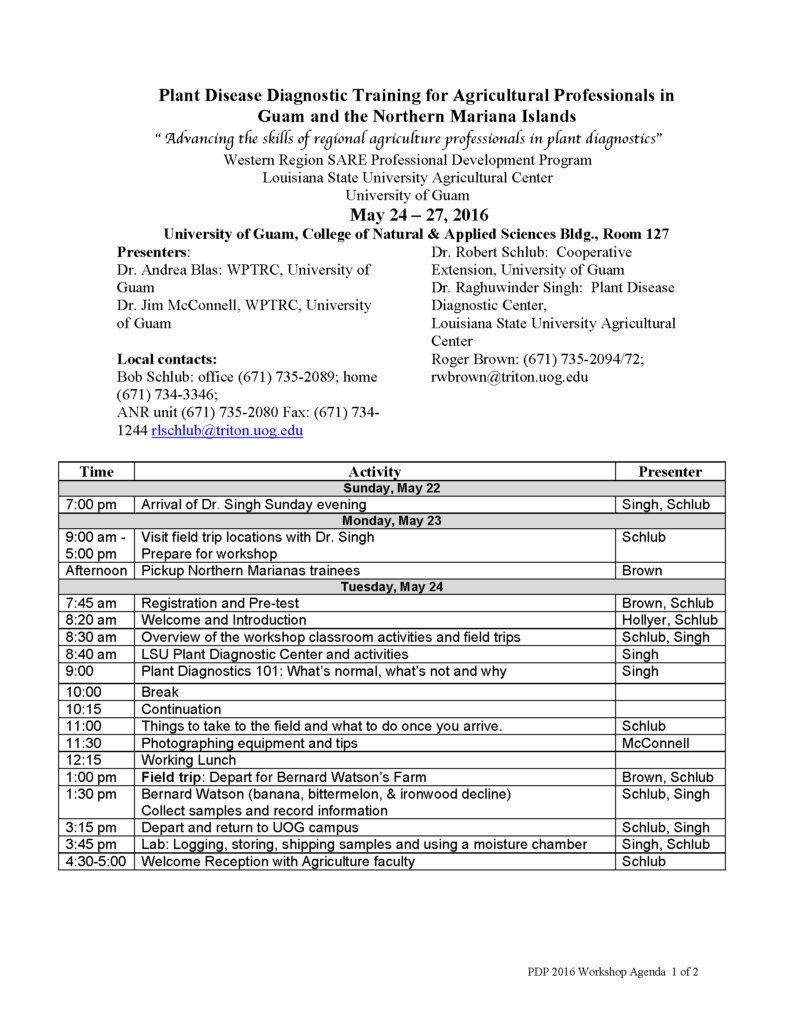
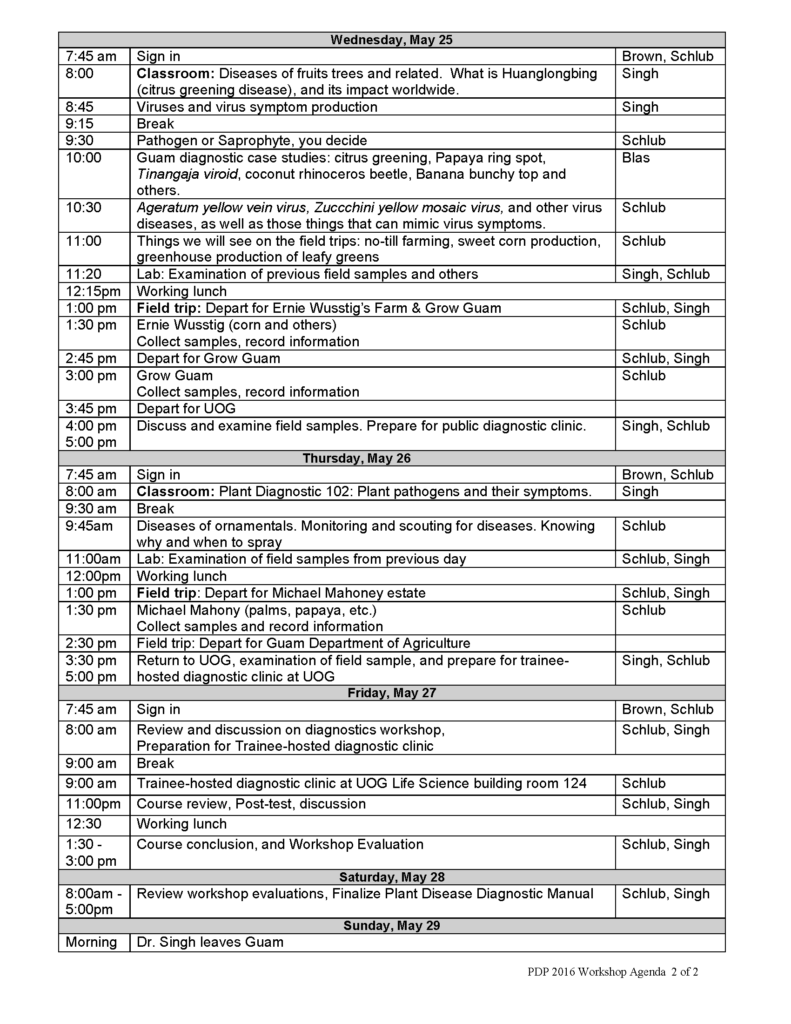
During the first three days of the workshop, classroom training was held in the morning hours and field training was held in the afternoon hours. Trainees were given instruction in field sampling techniques and the supplies and materials needed to collect suspected plant disease samples. After returning to the University of Guam in the afternoon, the trainees examined their samples and stored the samples in the Agriculture and Life Sciences building student laboratory. Stereo and compound microscopes were set up in the laboratory and trainees who needed it were given instruction on their use (Figure 1).
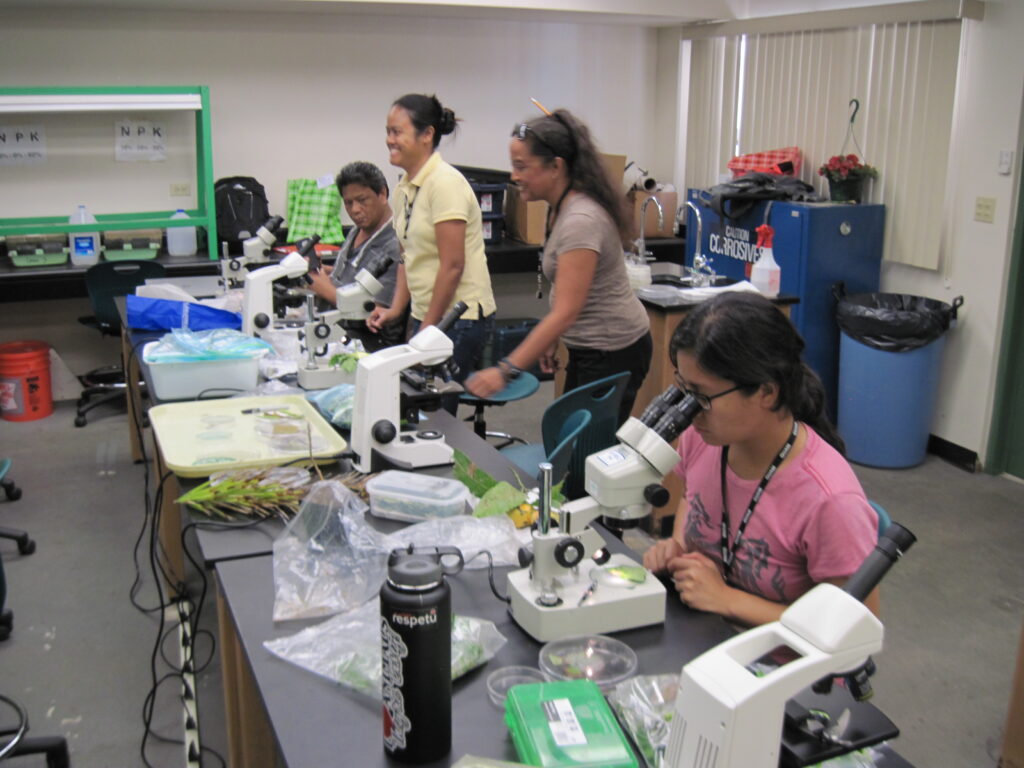 Figure 1: WSARE PDP trainees use microscopes to diagnose plant diseases.
Figure 1: WSARE PDP trainees use microscopes to diagnose plant diseases.
During the first day of training, instruction focused on basic plant disease diagnostics and photographing plant disease symptoms (Figure 2). Instructors were Dr. Singh, Dr. Schlub, and Dr. McConnell. In the afternoon, trainees and instructors made a field trip to Bernard Watson’s farm for plant disease sampling from vegetable and fruit crops. (Figure 3).
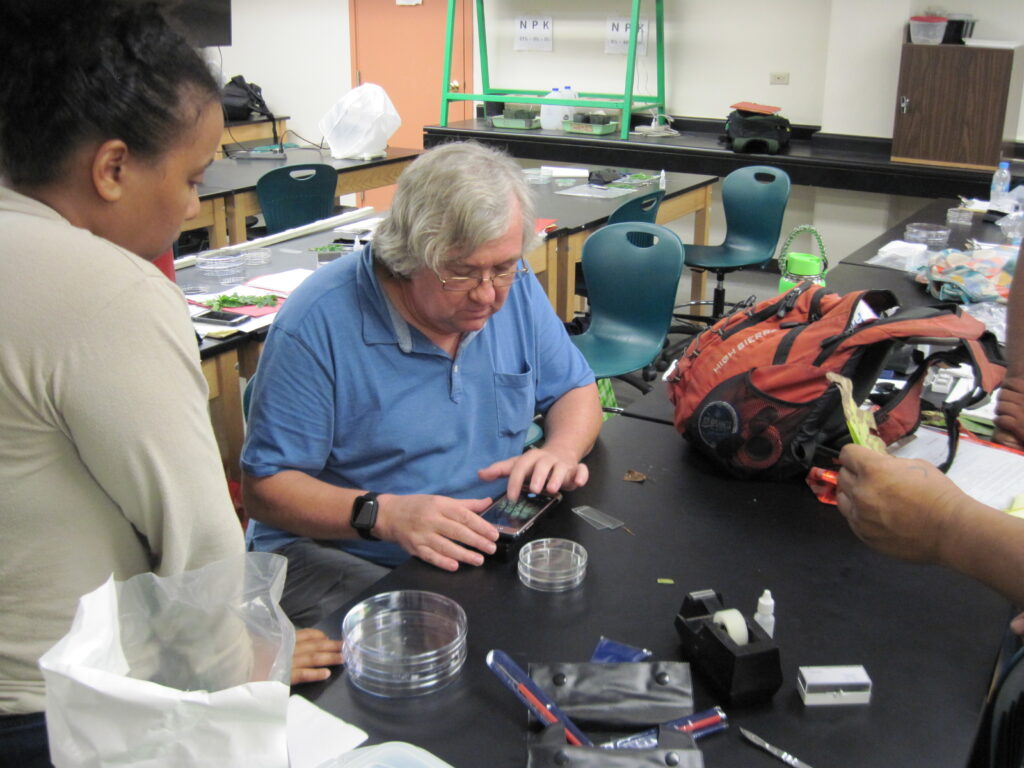
Figure 2: Dr. James McConnell gives WSARE PDP trainees instructions on photographing plant disease symptoms.
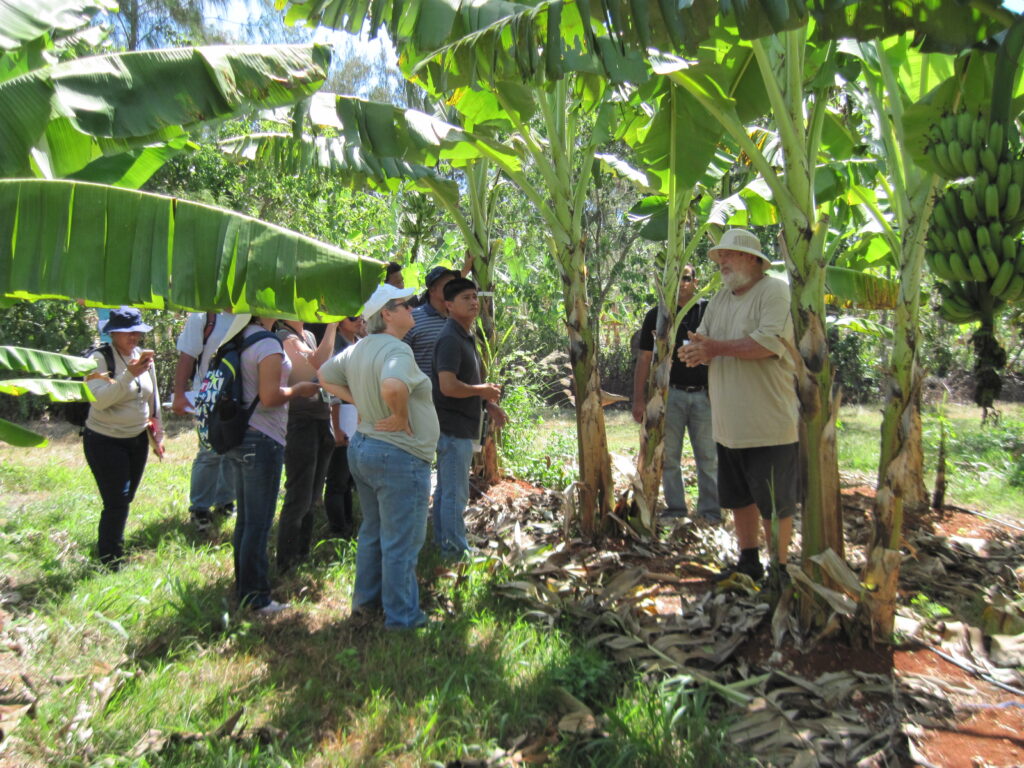
Figure 3: Farmer Bernard Watson discusses his plant disease problems with WSARE PDP trainees.
During the second day of training, instruction focused on viruses affecting Guam and the Region, with added instruction on a recently introduced to Guam disease, Citrus Greening (Figure 4) caused by bacteria. Instructors were Dr. Schlub, Dr. Singh, and Dr. Blas. In the afternoon, trainees and instructors made a field trip to Grow Guam and Ernie Wustig farms for plant disease sampling of vegetable, fruit, and corn crops (Figure 5).
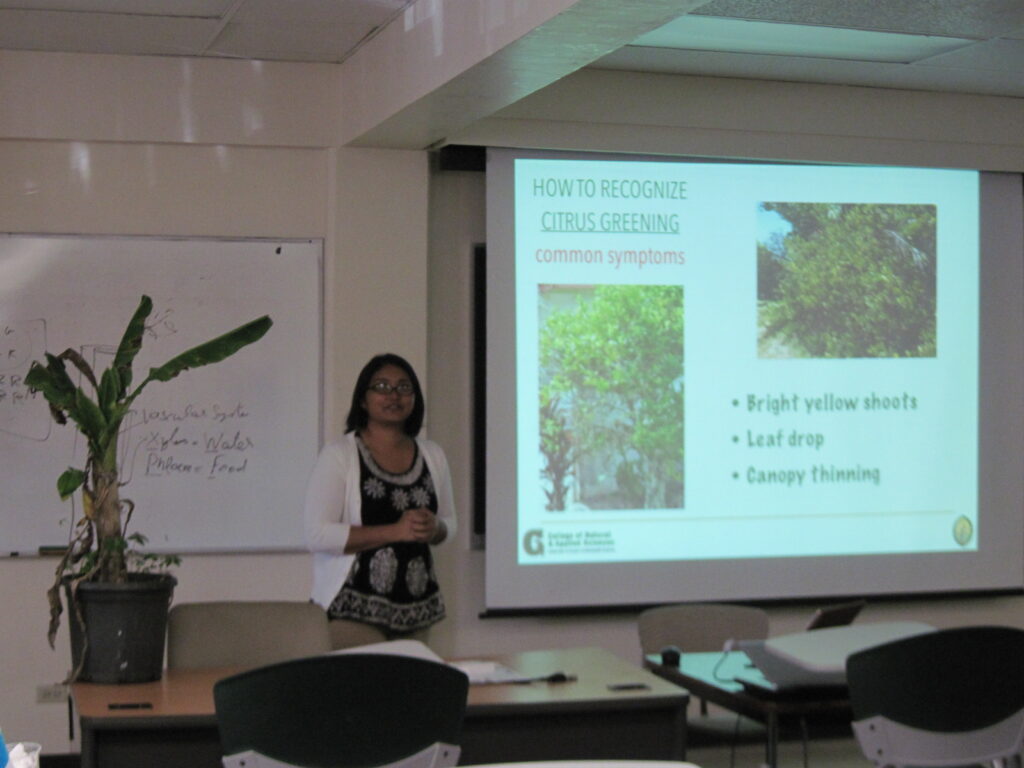 Figure 4: Dr. Andrea Blas discusses citrus greening, a recent introduction to Guam, with WSARE PDP trainees
Figure 4: Dr. Andrea Blas discusses citrus greening, a recent introduction to Guam, with WSARE PDP trainees
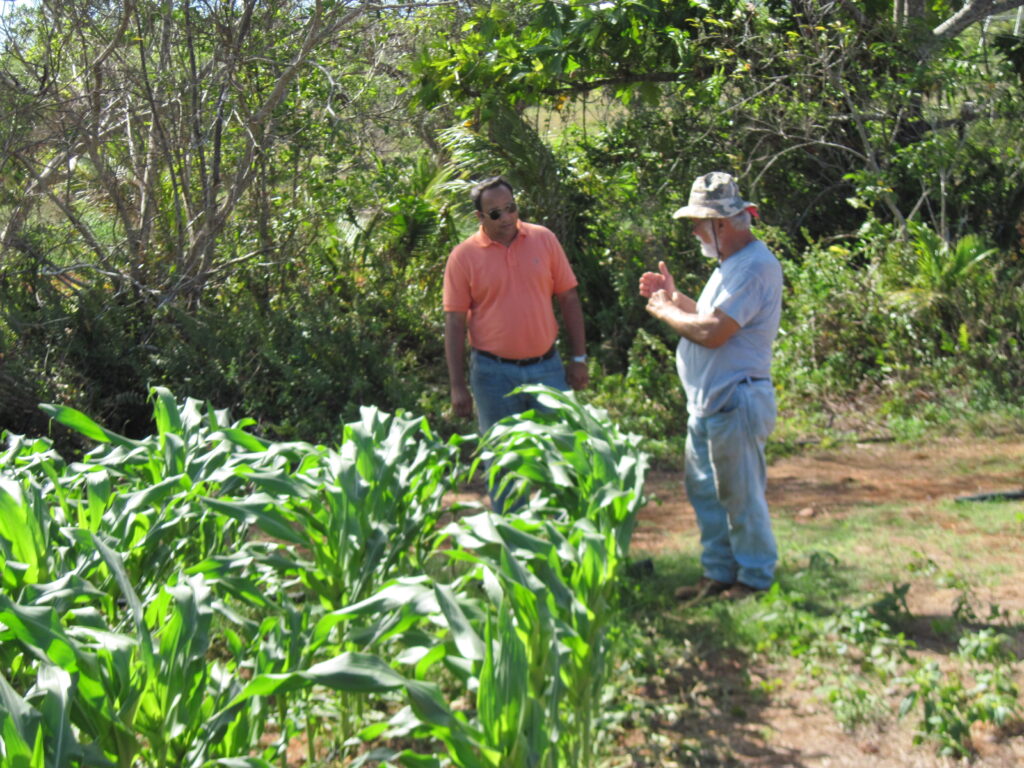 Figure 5: Dr. Raghuwinder Singh, left, and Guam farmer Ernie Wustig during WSARE PDP training field trip.
Figure 5: Dr. Raghuwinder Singh, left, and Guam farmer Ernie Wustig during WSARE PDP training field trip.
During the third day of training, instruction focused on diseases of palm and ornamentals. Instructors were Dr. Schlub and Dr. Singh. In the afternoon, trainees and instructors made a field trip to Michael Mahony’s landscape farm (Figure 6) and the Guam Department of Agriculture “Food to Table” farm for plant disease sampling of palms/ornamentals, fruit, and vegetable crops.
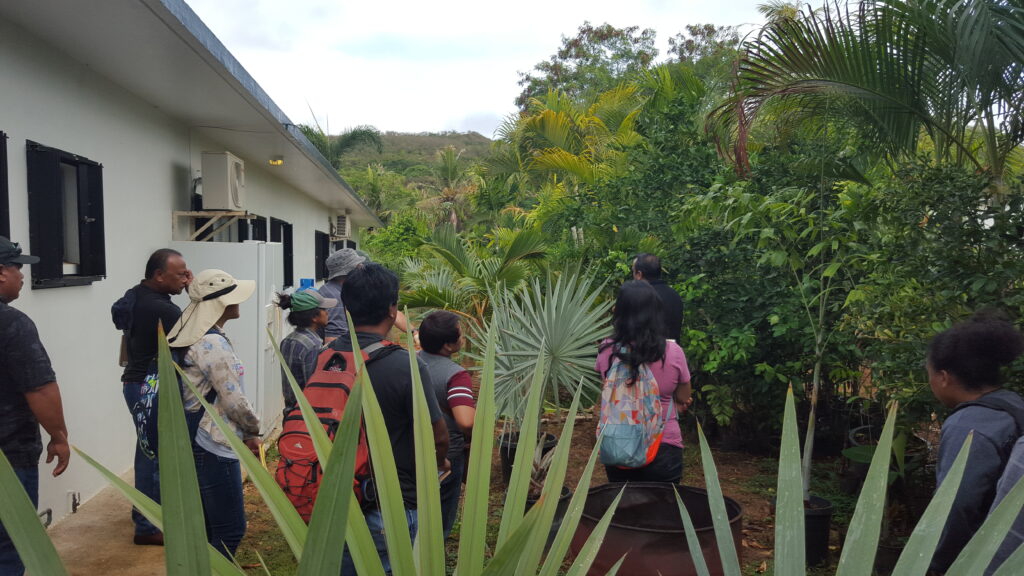 Figure 6: WSARE PDP trainees at Michael Mahony's Landscaping farm.
Figure 6: WSARE PDP trainees at Michael Mahony's Landscaping farm.
During the fourth day, the Guam public was invited to bring in suspected plant disease samples for a trainee-hosted diagnostic clinic at University of Guam Agriculture and Life Science building laboratory. The trainees diagnosed plant disease samples using what they had learned over the previous three-day workshop (Figure 7).
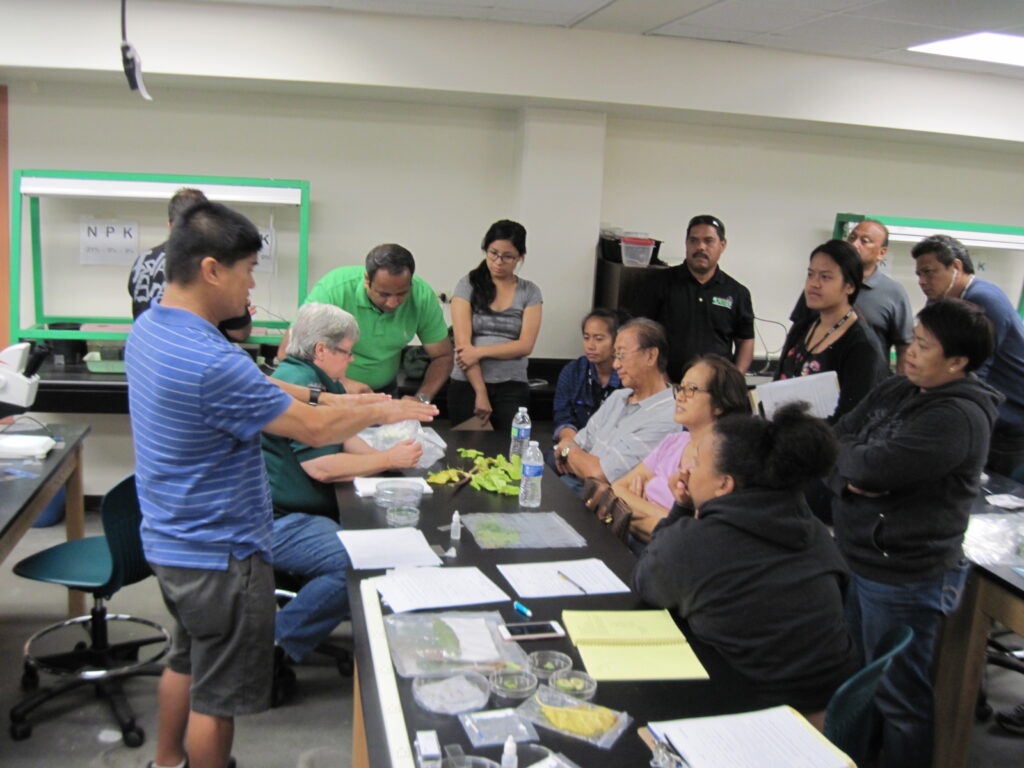 Figure 7: WSARE PDP trainees diagnose samples from the general public.
Figure 7: WSARE PDP trainees diagnose samples from the general public.
Certificates of Training were handed out to the trainees following the four-day workshop (Figure 8).
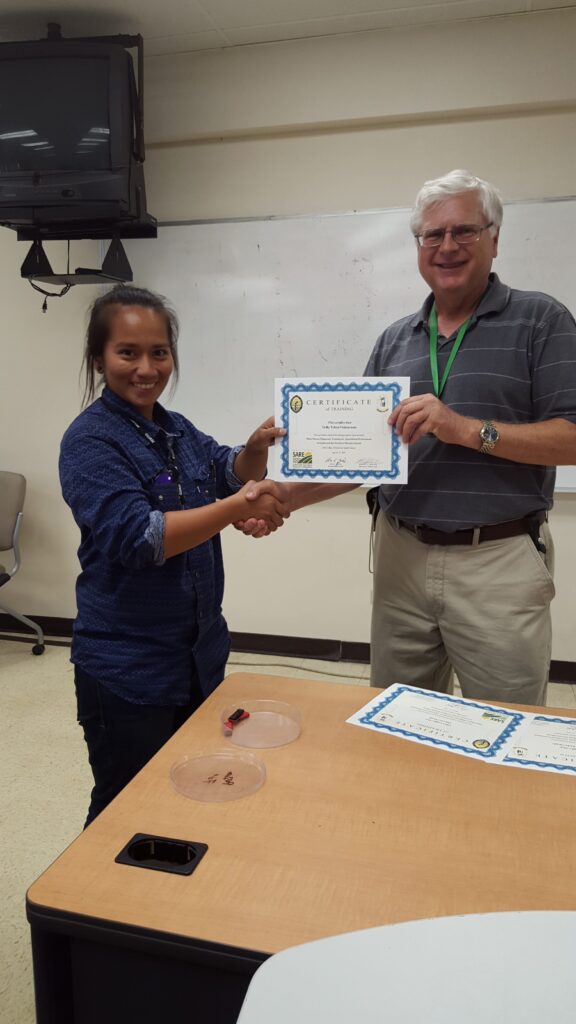
Figure 8: Dr. Robert Schlub awards a Certificate of training to WSARE PDP trainee Solly Takai-Nakamura from NMC/CREES
Activity (5) Publish and make available to the public the project’s disease list and diagnostic manual:
The "Index of Plant Diseased on Guam" (disease list) is intended as a general reference of plant diseases in Guam and is derived, without bias,
from a wide array of resources with varying degree of authenticity. As a means to exclude possible
saprophytes and non-pathogenic organisms, wherever possible, entries will be confirmed as likely
pathogens through a search of the literature or by an authoritative identifier. This list of plant diseases
and their hosts in Guam and the Northern Mariana Islands was compiled from local, regional, and
national resources, as well as personal communications. Sources include the Guam Agricultural
Experiment Station Reports dating back to 1972, Guam Cooperative Extension fact sheets and
production guides, the University of Guam Journal Micronesica dating back to 1969, United States
Department of Agriculture (USDA) Beltsville, Maryland records, and literature searches from various
sources including the Centre for Agriculture and Biosciences International (CABI), and the South
Pacific Commission (SPC). The "Plant Disease Index" can be found on the University of Guam website at the following location:
http://cnas-re.uog.edu/wp-content/uploads/2018/01/small-File-Index-of-Plant-Diseases-in-Guam-Final_Submitted-01052018.pdf
The "Plant Disease Manual for Agricultural Professionals in Guam and the Northern Mariana Islands" was finalized: Extension and Outreach faculty member Dr. Robert Schlub in collaboration with the director of the Louisiana State Extension Plant Diagnostic Center, Dr. Raghuwinder Singh conducted a four-day diagnostic training workshop in an effort to strengthen the diagnostic capabilities of Agriculture Professionals in the region. Over the course of the training, agricultural professionals from Guam and the Northern Mariana Islands received classroom instruction, which was reinforced with plant disease specimen collection field trips and laboratory exercises. The training emphasized diagnoses based on field symptoms and those revealed through the use of a hand-lens. This manual will serve as a modified online version of that training.
The manual can be found on the University of Guam website at the following location:
http://cnas-re.uog.edu/expertise/plant-pathology/2016-plant-disease-diagnostic-training-online-manual/
Activity (6) Insure all participant information is made available in the Participant section of the final report so that WSARE can perform a long term survey/evaluation of the project:
As per an email from WSARE, all participant information, including name, job title, organization, organization address, and email are included in the Participant section of this final report so that WSARE can perform a long term survey/evaluation of the project..